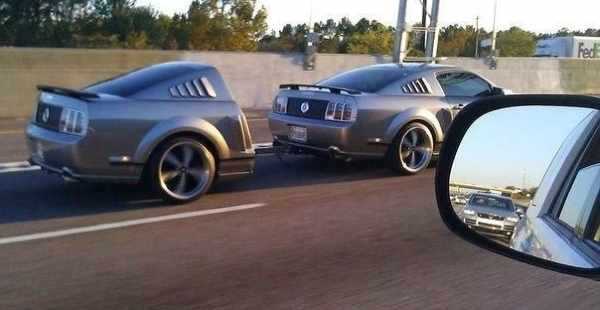Transportation takes many forms for functional and leisure purposes. Whether you’re carrying heavy household items or preparing for your next trip, trailers can help you with safe and seamless transportation. If you’re looking into renting or purchasing a trailer, your towing experience doesn’t always have to be stressful, even if you only have a muscle car. Don’t have a truck for pulling a trailer? Your muscle car got your back. Towing a trailer without any experience is quite challenging, but these five tips will help you find your way using your muscle car:
1. Know Your Vehicle’s Capabilities
Many vehicles, not just trucks, are capable of towing. Some car owners might not even be aware that their cars can tow. Muscle cars are good towing candidates because of their enormous horsepower. To confirm that you can use your vehicle for towing, revisit your owner’s manual and read the cargo and towing section.
What makes a right tow vehicle? Before gathering any towing equipment and planning your towing adventure, make sure that your car ticks off the following requirements:
- Higher curb weight
- Electronic stability feature
- Solid steel chassis
- Longer wheelbase
Since muscle cars possess a modest weight, immense power, and blazing acceleration, they are good towing candidates.
2. Choose The Right Trailer For Your Needs
Despite your muscle car’s capability, the type of trailer and its load are also contributors to your towing success. Trailers have varying capacities, designs, and configurations that will perform differently from your needs. Hence, picking the right trailer to attach to your muscle car is also essential.
If you want to score a quality yet affordable trailer, look for trailer companies that design purpose-built trailers with precise specifications, like the Lucca Trailers.
What object will you be hauling in the trailer? If you’re transporting heavy equipment, sturdiness should be your priority. If the trailer will contain livestock, invest in comfort and stability. The cargo payload capacity, or the maximum cargo weight to be hauled, should also be compatible with the load capacity of the trailer and muscle car.
3. Tow Hitch Is Your Best Friend
While muscle cars possess excellent horsepower useful for pulling heavy loads, horsepower isn’t enough to tow your trailer successfully. Muscle cars aren’t specifically built for towing despite having the ‘muscle’ to do the job. Aside from horsepower, torque and stability come into play.
The right tow hitch can offer substantial help in pulling your trailer. The tow hitch will serve as the most vital connection point of your muscle car and trailer, so the attachment should be secure and precise.
Trailer hitch capacities range from Class 1 to Class 5, depending on the gross trailer weight (GTW) or the trailer’s entire weight. Typically, Class 1 hitches suit compact and subcompact vehicles best, and the vehicle size increases as you approach Class 5 hitches.
4. Focus On Safe And Mindful Driving
Once you’re geared up and ready to go, you should focus next on driving safely on the road. Driving doesn’t feel the same when there’s a substantial load hauled on your back. Before driving, plan your route strategically to avoid any inconvenience down the road, such as dense traffic, steep roads, and construction areas.
Here are other tips to take note of when driving with a towed trailer:
- Prior to starting your engine, double-check your trailer load to ensure proper trailer weight distribution.
- Fill up your car’s tank before the trip.
- Drive as slowly as possible, not exceeding 55 mph.
- You have a lot more resisting mass before a complete stop, so step on the brakes early.
- Consider length and maneuverability when pulling into your destination.
- Take wider turns than you would without a trailer.
Takeaways
Attaching and pulling a trailer takes a great deal of research and considerations. Safety is the most crucial facet of towing a trailer, thus following the tips discussed above can help you achieve a safe and fulfilling towing experience.

